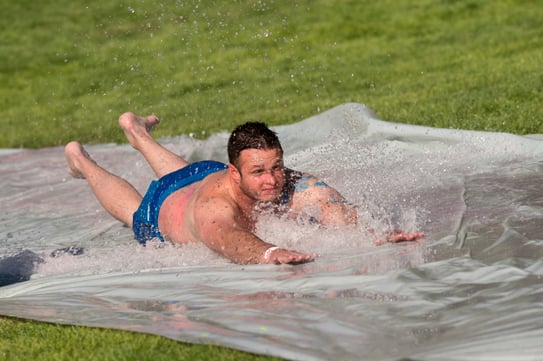
As the scorching summer sun takes center stage, it's crucial to prioritize our well-being and stay safe in the heat. While summer offers opportunities for outdoor fun and relaxation, it also poses various health risks, such as heat exhaustion and heatstroke. In this blog post, we will explore essential tips and strategies to keep you cool, comfortable, and most importantly, safe during the hot summer months.
Hydration is Key
When temperatures rise, it's vital to stay hydrated throughout the day. Drink plenty of water, even if you don't feel thirsty. Dehydration can sneak up on you, leading to fatigue, dizziness, and even more severe complications. Avoid excessive consumption of caffeinated or alcoholic beverages, as they can contribute to dehydration. Opt for water, fruit-infused water, or natural fruit juices to replenish electrolytes and stay hydrated.
Dress Appropriately
Choosing the right clothing can make a significant difference in keeping cool in the heat. Opt for loose-fitting, lightweight, and breathable fabrics such as cotton or linen. Light-colored clothing reflects sunlight, while dark colors absorb heat, so opt for lighter shades whenever possible. Wearing a wide-brimmed hat and sunglasses can provide additional protection from the sun's rays.
Seek Shade and Limit Sun Exposure
Avoid direct sun exposure during the hottest parts of the day, usually between 10 a.m. and 4 p.m. If you need to be outdoors, seek shade under trees, canopies, or umbrellas. Applying a broad-spectrum sunscreen with a high SPF is crucial to protect your skin from harmful UV rays. Reapply sunscreen every two hours or more frequently if you are swimming or sweating excessively.
Stay Cool Indoors
When the heat becomes unbearable, it's essential to find ways to cool down indoors. Ensure your living space is properly ventilated by using fans or air conditioning. If you don't have air conditioning, create cross-ventilation by opening windows and using fans strategically. Close curtains or blinds during the day to block out the sun's heat. Consider spending time in air-conditioned public places like libraries, shopping malls, or community centers to escape the heat.
Take Regular Breaks and Pace Yourself
Engaging in physical activities or working outdoors during extreme heat can be dangerous. If you must exert yourself, take frequent breaks in shaded or air-conditioned areas. Listen to your body and pace yourself to avoid overexertion. Schedule outdoor activities during cooler parts of the day, such as early morning or evening. Remember to adjust your exercise routine to match the intensity level suitable for hot weather conditions.
Keep an Eye on Vulnerable Individuals
Certain individuals, such as the elderly, young children, and those with pre-existing medical conditions, are more susceptible to heat-related illnesses. Check on your loved ones, friends, and neighbors to ensure they are coping well with the heat. Encourage them to follow safety precautions and provide assistance if needed.
Be Aware of Warning Signs
Familiarize yourself with the warning signs of heat-related illnesses. Heat exhaustion symptoms include heavy sweating, weakness, headache, dizziness, nausea, and muscle cramps. If you or someone you know experiences these symptoms, move to a cooler place, drink cool water, and apply cool compresses. Heatstroke is a severe condition that requires immediate medical attention. Signs of heatstroke include a high body temperature, altered mental state, rapid heartbeat, and rapid shallow breathing. Call emergency services immediately if you suspect heatstroke.
Summer is a time to enjoy outdoor activities, but it's crucial to prioritize your safety and well-being in the heat. By staying hydrated, dressing appropriately, seeking
This blog was written with the help of ChatGPT.

-1.png)
